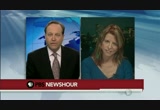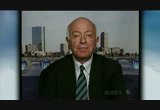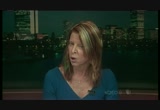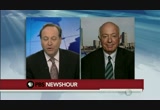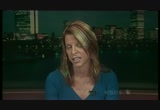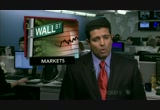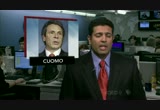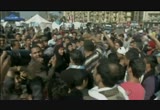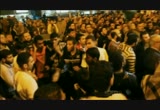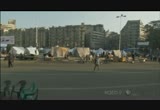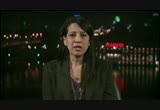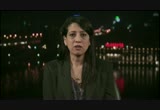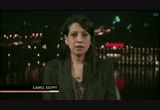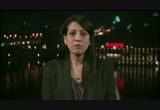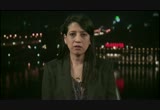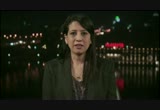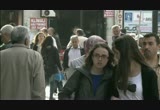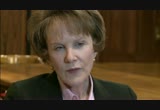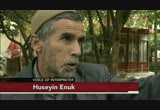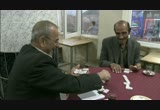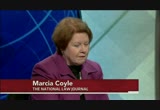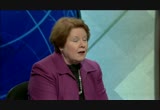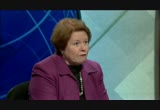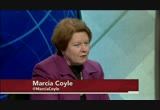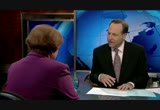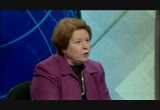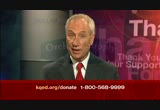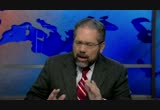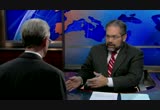tv PBS News Hour PBS November 26, 2012 6:00pm-7:00pm PST
6:00 pm
assess what makes consumers spend, and what impact all those purchases have on the economy. >> brown: we have two stories about continuing unrest in the middle east, beginning with the political crisis in egypt. >> suarez: then, in her final report from turkey, margaret warner looks at the growing clout of syria's kurdish minority, and the impact that's having on the other side of the border. >> brown: when does a co-worker count as a supervisor? that question was before the supreme court today in a case about harassment. marcia coyle explains. >> suarez: and we examine new figures from the pew research center showing that young voters played a decisive role reelecting president obama. >> brown: that's all ahead on tonight's newshour. major funding for the pbs newshour has been provided by:
6:01 pm
moving our economy for 160 years. bnsf, the engine that connects us. and by the alfred p. sloan foundation. supporting science, technology, and improved economic performance and financial literacy in the 21st century. and with the ongoing support of these institutions and foundations. and... this program was made possible by the corporation for public broadcasting. and by contributions to your pbs station from viewers like you. thank you. >> brown: a still tentative american economy looked online today, as digital deals were to be had, and holiday shoppers lit up web sites.
6:02 pm
retailers had high hopes that cyber monday sales would add to what's been a strong start so far. >> if all goes as expected, today will end up being the busiest online david year, with major bargains and steep discountses just a click away. >> every year we see more and more consumers shopping is online, both the younger computer born with a computer in their crib, and the elder generation is now also shopping online. deals are become, plentiful. >> all told the research firm comstore, estimates americans will spend $1.5 billion online this year, an increase of 20% from last year. amazon.com and other sellers are going all out to keep up with the spike in demand. all this follows a successful opening holiday sales weekend that began on thanksgiving night. the national retail federation reports a record 247 million
6:03 pm
consumers cashed in on doorbuster deals in stores and online. on friday, internet sales surpassed the $1 billion mark for the first time. more about the early impact of the shopping season and the more now about the early impact of this shopping season and the broader economic trends. nariman behravesh is chief economist for i.h.s., a research and forecasting firm. nancy kane has written about the retail industry as a historian at the harvard business school. and neil irwin is an economics editor and columnist for the "washington post." what's the overview of the number so far? what do you take from them? >> well, there are a couple of trends, obviously. one is the consumer is in a very good mood for good reason. income growth is decent. job growth is coming along, as it were. housing is doing well. so consumers are in a pretty good mood, consumer confidence is at a four-year high and that's reflected in the christmas sales, if you will. they're solid.
6:04 pm
they're reasonable strong, 4%, 5% growth year over year. as you said earlier, it's really the online sales that are booming, well into the double digits. you mentionedly the 20% rate, and that's what we're expecting this year compared to last europe solid growth in terms of total spending by consumers on christmas goods and holiday sales. but the really interesting story is the online story where it's just growing like gangbusters. >> brown: let me ask cone. we talked about early shopping season. how are retailers dealing with the change? it's a lan landscape that changed even from a few years ago. >> the boundaries between brick and mortar and online. it's like someone took a big pink eraser and smudged all over retail. smart retailerses, everyone from neiman marcust high end, to
6:05 pm
target, are figuring out how to use the web, including smartphones, including apps for smarted phones, to draw traffic into their stores, increase online sales, and really try to make one plus one equal three. and it looks like for places like target, again, places like apple, that strategy is working very well. so a changed game, a game that's really very dynamic in which everyone is hunting and gathering-- retailers for customers, customers for deals. >> brown:ir, stil neil irwin, still ray lot of attention on the weekend. you said it may not be a good indicator. >> know we love the story of people rushing through the doors the wal-mart for all the sales and everyone going online today. as a broader indicator of what's happening in the retail sector, it's not the best indicator if the world. it doesn't tell you a whole lot about what happens during the
6:06 pm
holiday season, what happens to permanent consumption as a whole. that said, it's an important season for retaylors and economy, and with all the uncertainty out there to see a good start is better than the alternative. >> brown: what do you see? pick up on some of the things we talked about. >> american household is starting to fix its financial problems. it's gradual, it's halting. debt-service ratios are down to the 1990s level. the level of household debt to g.d.p. is down to early 2000 levels. the job market is gradually crawling back. and actually, consumer sentiment, it stepped down a little in november was up a good bit in september and october. american viewers feeling better than they were a year ago. the question is how much does that translate into cashing-- making purchasing at the store. >> brown: nariman behravesh, consumers are feeling better. are businesses feeling a little better? are they investing? are they hiring? how does that work? >> well, in a worrying way
6:07 pm
they're not. and we do have the disconnect in the u.s. economy between consumers on the one hand-- and they account for 70% of the economy-- but they're feeling fairly good about things. whereas businesses are not, and businesses tend to be more worried about things like the fiscal cliff, they're more worried about the troubles in europe, they're more worried about the slowdown in china. you do have the disconnect. the big concern is which way is it going to go? who is going to win this tug-of-war? so far it's the consumer but let's hope it's not the other direction because as i said, let's hope that the businesses will eventually come around to thinking about things the way consumers are. . >> brown: nancy cohen, i want to come back to you on the question of online shopping and the changed landscape. does the rise of online shopping have a real impact on the economy or is it sort of shifting, transferring, where people buy their things? >> well, that's a very open
6:08 pm
question, partly because this is so new. the marriage and the magic of online plus brickes and mortar. i mean, there's no question people are visiting online web sites more often than they do stores. whether that adds up to incremental organic growth is a question we just don't know. remember, we're starting with all online sales from a much, much lower base than wew we talk about brick and mortar sales. we're talking about hundreds of billions of dollars, $600 billion in predicted holiday sales. un, only a small portion of that, maybe 20%, but much more likely somewhere around 10% will be online sales. i think some of that is really organic and new, but we don't yet have the numbers for this holiday season. you know, several people have commented today, we don't even know if this kind of momentume which is very real, very significant for this five-day holiday spree, much more than even the boom optimists predicted -- whether that will continue into the long holiday
6:09 pm
season is still ahead. >> brown: neil what, do you look at, the question of online shopping? is it its own thing? does it add to the whole? what's the impact in the larger picture? >> people are going to spend based on their incomes and jobs and paychecks. ultimately, whether that spending happens online at amazon or in a store, you know, it matters for the retail sector. it matters for all kinds of workers in that sector. but in terms of the overall economy what matters is how much people are spending. one man's spending is another man's income and getting to a place where more people have jobs, people have higher incomes, that's the goal no matter where the dollars spent glefd what is your reading on the psychology of consumers now? you were saying earlier the debt overhang seems to be better. there is pent-up demand. can we tell yet? >> one thing i'm worried about is the fiscal cliff issue, the tax increases and spending cuts that take place january 1 unless congress and the president reach a deal. businesses have been worried about that for months.
6:10 pm
maybe consumers are start-- maybe it's starting to creep into their thinking as well. we saw a weaker consumer sentiment number last week. that's thing to watch to worry about as we wonder what the holiday season will be like. >> brown: nariman behravesh, is it strange or do things really change? on the one hand, we want people to get out and spend, but on the other hand, we still talk about over-spending and spending money people didn't really have was part of the problem that got us into this state in the first place. so what's-- that sounds like a little bit of a disconnect. where are we on that? >> well, i think neil is right in saying consumer finances are in much better shape right now. so in that sense, the kind of spending we're seeing now is more sustainable. it's healthier in a sense. debt levels are down. people are not taking, say, home equity out to spend on a car or, you know, a flat screen tv. so it's a much healthier kind of spending. i'm much more optimistic that it
6:11 pm
can be sustained, it can be continued and it's not going to be sort of a house of cards that's going to collapse at some point. so in that sense, i think there is room for optimism. >> brown: a brief last word on that from you, nancy koehn? >> i could not agree more. i think consumers are much smart emuch saffier, you notice how much consumer sentiment bounces around from monsto month. that's a consumer taking their pulse and adjusting their wallet and spending very quickly without access to the kinds of debt and house of cards financing we saw for the early part of the decade. >> brown: even, neil, if they're lining up overnight to get a deal. >> even if they're lining up. >> brown: thank you all three very much. >> thank you. >> pleasure. >> suarez: still to come on the newshour, egypt's constitutional crisis; the rising influence of syria's kurdish population; arguments in a harassment case at the supreme court; and the
6:12 pm
divide between young and older voters. but first, the other news of the day. here's hari sreenivasan. >> sreenivasan: president obama's top economic advisors warned today that the looming "fiscal cliff" may yet hurt holiday sales. in a new report, they said the prospect of automatic tax increases in 2013 could cause consumers to rein in spending. the report came as congress returned to work. lawmakers are under pressure to strike a deficit deal, preventing the tax hikes and deep spending cuts. wall street's week got off to an uncertain start, partly over concerns that strong holiday sales won't last. the dow jones industrial average lost 42 points to close at 12,967. the nasdaq managed about a ten- point gain to close at 2976. the woman who helped steer the government's regulatory response to the 2008 financial crisis is stepping down. mary schapiro announced today she's resigning as chair of the securities and exchange commission after nearly four years. president obama has designated s.e.c. commissioner elisse walter to replace schapiro, effective december 14.
6:13 pm
in bangladesh, thousands of people protested today over a deadly fire at a factory that makes garments for american and other companies. at least 112 people died in the saturday night blaze on the outskirts of dhaka, the country's capital. today, crowds of textile workers demanded justice and improved conditions. they accused management of putting production quotas ahead of people's lives. . >> reporter: what the fire alarm was raised, our factory manager, quality manager, assistant production manager told us nothing is happening. go back to work. the next moment, flames of fire blew up. everybody died. everyone. how can we deal with this? >> sreenivasan: that factory has supplied clothing to wal-mart, ikea, and other western retailers. another fire broke out today at a second factory, also in dhaka. this time, no casualties were reported. members of the m-23 rebel force in eastern congo focused today on consolidating their gains.
6:14 pm
the rebels ignored a call by an african regional group to withdraw from the city of goma, where they took control last week. government forces have pulled back to minova, trying to regroup. meanwhile, tens of thousands of people have fled the fighting for makeshift camps in the countryside. aid workers are struggling to provide them with food, clean water, and shelter. the u.n. accuses the neighboring states of rwanda and uganda of secretly backing the rebels, a charge they deny. the estimated damage done by hurricane sandy in new york has risen again to $42 billion. governor andrew cuomo announced the new figure today. it includes $32 billion for repairs and restoration and almost $10 billion more for measures to prevent damage from the next major storm. the state, along with new york city, will ask for federal disaster aid based on the damage tally. one of the legendary bands of rock 'n' roll is marking its golden anniversary. the rolling stones celebrated 50 years last night in london, with the first of five shows in the united kingdom and the u.s. nina nannar of independent television news filed this report.
6:15 pm
>> two and a half hours, 23 songs, and 50 years. . ♪ i said hey, hey, you, you. ♪ get off of my cloud. ♪ hey, hey, you, you, get of my cloud. ♪ hey, hey, you, you, get off of my cloud ♪ >> thankfully for the rolling stones glowing reviews on this, their opening night of their anniversary tour. ♪ i want to be your lover, baby i want to be your man ♪ >> reporter: the men have a combined age of 273 years. but last night, they were clearly enjoying their trip down memory lane. even jagger's joke about the controversial ticket prices "how you doing in the cheap seats?" he asked, did not spoil the mood of the fans who came from all over the world. >> i came all the way from australia, and it's the best ever. >> it was worth it for me. >> i just found it absolutely amazing. >> reporter: and even though last night there was no satisfaction, the band ran out of time, the fans were clearly
6:16 pm
more than satisfied. ♪ i want to be your man i want to be your man ♪ >> sreenivasan: those are some of the day's major stories. now, back to ray. >> suarez: and we turn to two stories about conflict in the middle east, starting with egypt. >> this morning saw relative calm in cairo's tahrir square, but protesters insisted they will not latest site until president morsi withdraws the sweeping decree he issued last week. it gives him broad new powers, free from judicial review. >> ( translated ): we demand the president listens to the people who chose him, the people who elected him so he would defend the people.
6:17 pm
>> reporter: that could provoke more trouble after a weekend of violence hitting liberal and secular factions against morse's islamist supporters. last night in cairo, protesters threw rocks at police who fired back with tear gas. demonstrators also clashed with pro-morsi egyptians. attacks on the local offices of the muzz lum brotherhood left one teenager dead and dozens of people wounded. thousands of the president's backers staged rallies in several cities. >> we support mohamed morsi's correct decision and eventually the good from the bad will be distinguishable. we support dr. morsi. >> u.s. officials raised concerns about morsi's decree. today the state department's victoria newlyand called for calm. >> what is important to us is
6:18 pm
that these issues be slelgted through dialogues, that these issues be selgtzed democraticry. we are encouraged that the various important stakeholders in egypt are now talking to each other, that president morsi is consulting on the way forward but we're not going to prejudge where that will go. >> the domestic unrest has more than shadowed morsi's role in the cease-fire between israel and hamas. concern was growing about more trouble in cairo tomorrow. this afternoon, the muzz lum brotherhood spokesman said the party had postponed demonstrations tuesday to avoid bloodshed. >> brown: a short while ago i spoke with nancy youssef. nan nancy youssef, let's begin with the latest statements from president morsi's spokesman. it's hard to know whether the president is backing off or simply clarifying the pronouncements he made late last week. how is it being red in cairo?
6:19 pm
>> >> reporter: that's exactly how it feels here after several days of protests, and tents in tahrir square, the scene that led to the overthrough of the previous regime. a spokesman came out saying he would have the final say over all sovereign matters. what constitutes a sovereign matter remains unclear. it seems they could be as broad or as specific as morsi wants. and under that agreement, he has ultimate say oaf those matters, and there's nobody who can overrule his decision. and that could apply to thingses like the commit they will draft the permanent constitution among other legal battles that are coming up in the next days and weeks here in egypt. >> suarez: through a kim of statements, it seems like want president is trying to protect one power more than all others. and that is, to shield the constitutional court from judicial interference while it's
6:20 pm
doing its work. why is that so important to keep that constitutional council from being meddled with during this period? >> reporter: well, right now, the constitution is made up largely of monies of the muslim brotherhood, which was his former party until he became president in june. members have reintriend from the committee, and the courts were expected to rule on the let of the constitutional committee next month because a lot of the members are made up the parl aryans made up of a legislative body that has since. that has come a key provision for everybody involved. that appears to be his chief region for trying to protect that body. what's interesting is because he's also in charge of the legislative, if that constitutional assembly is dissolved, it appears he has the say over who would be on it.
6:21 pm
i think what he's trying to avoid is being seen as-- being too overt in the assembly of the constitutional assembly, so this way he has a more distant approach to it, if you will. >> suarez: was the president under increasingly pressure over the weekend to seripped his earlier seizing of more powers as president? >> reporter: yes and no there were more protests, but the opposition that's out in tahrir square is quite divided about what they want. some called for him to rescind all seven point of that declaration. some called for teaks. some are out there calling for something different entirely, which is police reform. what i think is really happening in egypt is a debate about accountability and how much a democratically elected president should be accountable. morsi enjoys the support of a huge segment of the population that believes there is only one moment of accountability on election day and what morsi does in those four years is up to morsi.
6:22 pm
the opponents are saying no, he has to be accountable to the public as he's making these major decisions. and that's the split. the announcement today suggests he is very confident in that former segment, the ones that think he doesn't have to be accountable for every decision. a lot of people here are frustrated by the protests. they see it as hippeddering his ability to do his job. that's the central debate. and because of that, there's an expectation here that even though this issue has been resolved, until there is a permanent constitution, there will be eruptions like this, and disagreements over key decisions. >> suarez: you mentioned that the protesters where split, and of course they include members of the opposition parties. but are there also islamists, people who would be sympathetic to the morsi view of egypt today that feel like this sounds too much like the man they went into the streets to oppose in the first place, hosni mubarak. >> reporter: absolutely. it's interesting when you go out to tahrir square the diversity of the protesters.
6:23 pm
in a way we haven't seen since february 2011 when mubarak was toppledly. there are people who are worried because not-- some are quite concern pd a constitution written exclusively or largely by the muslim brotherhood, and some are part of this opposition as well. so there's a whole mosaic of people out there in opposition. there are also complicated things because they can't reach a consensus about what would be an acceptable outcome. there are huge protests scheduled tomorrow throughout the country. it's unclear whether people will come out in the kinds of numbers we in anticipated just a few hours ago in light of this decision, and i think that really reflects the division amongst islamists, secularists, liberals, and christians over what the expectations of morsi should be, and what should be acceptable outcome in this issue. >> suarez: has this crisis overshadowed what might have been president morsi's victory lap over brokering a cease-fire
6:24 pm
between hamas and israel, just a few days before? >> reporter: well, interest tell, people here believe that one of the reason people believe he made the announcement is he had a newfound confidence and power from that announcement, and that that was the timing. remember hillary which the made the announcement with his foreign minister on wednesday night, and thursday, thanksgiving day, he made this announcement. it seems that it's hurt his standing in the international community. we heard from the state department today that what was happening here was-- they described it as murky, for example. but domestically, there wasn't as much embrace of morsi's role in gaza as i think there was in the international community. people were happy that morsi sort of reestablished egypt's place as an international player. but there are so many pressing domestic issues that they in a way overshadowed gaza and his role in the negotiations. so in a strange way, the feeling
6:25 pm
here is that had that not happened, perhaps he wouldn't have made this announcement now. >> suarez: nancy youssef joining us from cairo, thanks for joining us. >> thanks. >> bombed rebel headquarters near the turkish border today, sending hundreds of syrians fleeing. >> warner >> warner: just 25 miles from aleppo, which is being pounded into dust by bashar al assad's air force, the syrian town of afrin is a picturomestic tranquility. but that's because it's being run by a relatively unknown
6:26 pm
player in syria's civil war: syrian kurds. they fly the banned kurdish flag in a symbol of defiance and pride. the kurds took control of the town after the government's overstretched ground forces withdrew earlier this year. the kurds quickly demolished the regime's jailhouse. but much of life here seems normal: olive groves are being tended, and there's a new school for women, who were denied education before. >> there are three forces in syria: the regime force, the free army force, and we became the third line in this struggle. >> warner: atoof abdo heads the new people's council in afrin. >> every community has its own destiny now, so as a free city, we implementing self-government. >> warner: throughout syria, the people are getting nearer to freedom and to democracy. the world's estimated 30 million ethnic kurds are most concentrated in four countries: turkey, iraq, syria, and iran. primarily muslim, but of different sects, many ethnic kurds think of themselves as a
6:27 pm
common nation without a state. in iraq, kurds have autonomy in thriving iraqi kurdistan. kurds in syria are trying to position themselves to do the same. they aren't even granted citizenship in assad's syria. but rather than fight assad's troops, they are taking their place in northern towns near the 500-mile border with turkey when government forces depart to focus elsewhere. the assertiveness of syria's kurds is causing anxiety in turkey. tens of thousands of turkish citizens-- kurd and non-kurd alike-- have been killed in three decades of an insurgency for independence waged by turkey's outlawed kurdistan workers' party, or p.k.k. p.k.k. terror attacks began trending up last year, shortly after turkish prime minister recep tayyip erdogan called on syrian president assad to step down. the growing power of the syrian
6:28 pm
militia-- close allies of the p.k.k.-- is exacerbating a most sensitive issue in turkey, says kemal kirisci, a political scientist at bogazici university in istanbul. >> there is a feeling on the part of the public especially that the northeastern parts of syria that is heavily populated by kurds obtained a kind of de facto autonomy. it has led to the turkish public to believe that there is a threat emanating from this particular area. >> warner: one of the syrian areas taken over by the kurds: the city of kamishli, just across from its former half in turkey, nusaybin. millions of turkey's kurds have assimilated into turkish life, but not in southeastern enclaves like here in nusaybin. and the fact that kurds in syria are now in partial control of
6:29 pm
the city of kamishli just across the border stirs yearnings for similar liberties among kurds here. nusaybin is almost entirely kurdish. a kurdish language newspaper is sold openly, and the turkish papers feature news about the jailed leader of the p.k.k., abdullah ocalan. but many kurds told us they feel marginalized. >> we have no life. we are having a hard time here. we are kurds, and turks and arabs don't accept us here. >> warner: kurds complained bitterly about the turkish government closing the border crossing to the syrian side about a year ago. they can't visit their syrian relatives, and kurdish shop keepers say their business is down 70% or more. so food seller mahmut simsek says he's thrilled to see the syrian kurds taking over in their cities. >> we are happy about this.
6:30 pm
we are happy because they are our brothers. we are the same people. of course we would be happy about this. >> warner: tea wholesaler ali sino went even further. >> we wish and we hope that's going to happen that the kurds get completely free on the other side. >> warner: and how about on this side someday? >> of course those on this side should get free, too. they have divided us into four countries and one day we'll come and get into one country together. >> warner: that kind of separatist talk stirs deep fears among non-kurd turks, as we heard in the southeastern city of mardin, just 30 miles away. >> if they get their freedom over there, of course they will create problems for turkey, create a headache for turkey. >> warner: and there's also the more immediate security threat posed by the growing p.k.k. attacks inside turkey, said ibrahim fide, who runs the mardin provincial office of prime minister erdogan's ruling justice and development party. >> for sure, syria is actually supporting the p.k.k.
6:31 pm
and that's also made the p.k.k. attacks increase. >> warner: so why do you think assad is deliberately trying to stir up the p.k.k.? >> i can't say why they help the p.k.k. you should ask them. we don't know exactly how this happens, but even letting the p.k.k. cross over and stay there, that is already support. >> warner: fide said the renewed p.k.k. attacks are especially upsetting after what he says have been several years of greater freedoms for kurds. >> there is no pressure on the kurds on expressing their language and their culture. there are not any problems between different ethnicities. the different nations all live together in peace. we call this one nation together. >> the kurds have had big pain. they have suffered a lot in this area. >> warner: back in nusaybin, mayor ayse gokkan, a former journalist elected four years ago from turkey's legal kurdish political party, takes issue with fides' rosy view. though her party doesn't espouse kurdish independence, she
6:32 pm
greeted us with a hearty welcome to kurdistan in her office overlooking the turkey-syria border. >> kurds were happy when iraqi kurdistan became autonomous. and of course after what happened in syria, kurds fighting for democratic autonomy there, many kurdish people here are happy, too. >> warner: but gokkan said that does not mean that most of turkey's kurds want to carve out independence for themselves. >> the kurds don't want their own country. they don't want to separate from turkey. they don't want new borders. they just want to live in their freedom in their own country-- free to have their own language, education. that's what they demand, not to have a separate country. >> warner: reassuring words, seemingly borne out just down the road from the mayor's office at the new mittani kurdish cultural center. >> we have here kurdish and turkish books. there is a big demand for reading and learning kurdish here, because children at the school are not allowed to learn kurdish.
6:33 pm
>> warner: a library of kurdish books would have been unthinkable a few years ago, yet center director berrin aslan doesn't feel entirely secure. >> the government doesn't like us at all what we're doing here, but so far they have not done anything to us. but they are not happy about the work we're doing here. >> warner: another disquieting note: on the grass out back, as dusk fell in the shadow of the syrian border, a guitar class was under way. the young people were singing in kurdish. it was an ode to zilan, dead now 16 years-- a folk heroine to some, a terrorist to many, the first female suicide bomber of the p.k.k. >> suarez: you can watch margaret's earlier reports from syria on our web site.
6:34 pm
who qualifies a a supervisor in the workplace. as a legal matter courts have come to different conclusions, some saying it's confined to someone with powers such as hiring and firing, others deciding on a broader definition. the supreme court looked at the issue today. marcia coyle is here with us tonight. first the facts of the case, vance v ball state university. >> first of all, this case involves title vii of the civil rights act, which as you know is our antidiscrimination law. under. the supervisors is imbued with the employer's authority. an employer can be held liable if a nonsupervisor employee harasses another employee. but it's tougher to prove.
6:35 pm
you have to shout employer knew or should have known about the harassment and failed to act. maida vance brought this lawsuit against ball state university. she's an african american woman working in the dining services division of the university, claimed she was harassed by a white coworker, was slapped on the head, blocked at the elevator, racial epithets were used such as "sambo" and "buckwheat" in her presence. she complained and finally brought her lawsuit against the university. she lost in the lower courts. the lower court, federal appellate court, said this coworker was not a supervisor, and took the definition that is probably the most restrictive-- that is, the supervisor has to be somebody who can make a tangible employment decision, such as hiring and firing. >> brown: today it made its way to the supreme court, and her lawyers are arguing for something broader than that. >> absolute. in fact there was an interesting
6:36 pm
argument because not only her lawyer but the lawyer for the federal government and the lawyer for the university did not support the lower federal court's definition of supervisor glo. >> brown: even though they had won down there? >> yes, even though. but there were nuances here. first of all, miss vance's lawyer believes the correct approach opener standard is to say that anyone who controls your daily activities is a supervisor for liability purposes. and the federal government argued, deputy solicitor general argued that the court should accept the e.e.o.c., the equal employment opportunity commission approach, which is either/or. you either do make tangible employment decisions or you control an employee's daily activities. the university argued basically we'll accept the broader definition, but there has to be some meaningful limits on it.
6:37 pm
the other-- the harassing employee cannot be somebody who occasionally controls your activities. it has to be a meaningful activity. >> brown: on this case the university is the employer. >> yes. >> brown: the implications-- wider implications for other countries. they would be arguing against the broader definition. >> absolutely. the u.s. chamber of commerce-- >> brown: it's a big deal for them, isn't it? >> it is. it's all about money, liability. if the court accepts the stricter definition, the lawyers and organizations that represent workers fear that employers will start moving categories of workers into the supervisor category in order to avoid liability, whereas employers are concerned with a broader definition that they will have greater potential liability. >> brown: and did the justices tip their hands? any interesting questions? >> well, i didn't see a lot of support for the strict definition, although, chief
6:38 pm
justice roberts pointed out that there is an advantage to that, and that is you know clearly it's a bright line rule what the analysis is going to be. he worried that a broader definition creates sort of a continuum of employees who fall on that continuum as to, you know, individual facts of each case are going to matter and courts are going to be drawn into endless debates as to who is a supervisor. >> brown: in the meantime, the court also took another action today, not arguments. but they sent back to the lower courts a case that concerns the affordable care act, of course the big event from last session. >> liberty university was one of four cases last term that challenged the affordable care act. today, the court sent liberty university's case back to the 4th circuit court of appeals because liberty university had raised other claims that the supreme court did not decide last term. liberty university wants to
6:39 pm
challenge the individual mandate to purchase insurance and the law's employer mandate to provide insurance on religious grounds. liberty university, as you know, was founded by the reverend jerry fallwell, and it claims the affordable care act, those two mandates in particular, violate the free expression of religion. >> brown: the court is saying that is not something we took up last time, send it back to the lower courts. let them hear it. >> right. the lower court was the only federal appellate court that refused to let liberty university's lawsuit go forward at all because that old anti-injunction act. that was the only court that found that that law blocked challenges to the affordable care act. the supreme court ins final health care ruling said that that act did not apply. >> brown: briefly, so now there's a chance it will come back to the supreme court. >> i'll bet you dollars on donuts. >> brown: you will? >> if liberty university loses, that liberty university will be
6:40 pm
back at the supreme court probably next year. >> brown: i'm not taking a bet against you. we'll talk about it if it happens, of course. marcia coyle, thanks again. >> my pleasure, jeff. >> suarez: we'll be back shortly with a look at the age gap in the votes cast in this year's presidential election. but first, this is pledge week on pbs.
6:46 pm
6:47 pm
election. in 2008, young people went to the polls in record numbers, with 66% of 18- to 29-year-olds supporting president obama, helping to sweep him to victory. but this year the president's support among that age group dipped to 60%, although young voters proved much more critical to his reelection win. that's the subject of a new analysis by the pew research center, and we are joined now by michael dimock, one of the study's lead authors. michael, there were confident predictions before election day that youth was simply not engaged, not enthusiastic, and not going to show up on election day. what really happened? >> well, they did. and i think it was probably the biggest surprise to a lot of analysts looking at those exit polls on election night. the youth vote was as strong in terms of turnout as it was four years ago, and a lot of preelection indicators suggested there might be more of a fall-off. so obama's support slipped a bit among that group, but their
6:48 pm
numbers and the continued in his direction. >> suarez: with at shrinking electorate, since many fewer voters turned out this time, if you hold, that means you've increased your impact, no? >> in a way. i think there were about the same share of voters this year as four years ago which is important because there was a sense in '08 that that was a unique moment where young people frustrate with the bush administration were coming out in numbers for a youthful presidential candidate. four years later, after four long, hard years of a tough economy, that has hit this generation harder than anybody else to maintain that and have those turnout numbers is striking. >> suarez: we mentioned the raw number came down for president obama but he still won by a sizable margin. inside that 60%, what changed since '08? for instance, white voters tailed off, didn't they?
6:49 pm
>> that's right. obama won the support of young white voters four years ago. that group, 18-29-year-old white voters tilted the other direction this year. they favored romney by a somewhat slim margin. but they don't make up that big of a share of the young voters. what kept obama in such strong standing is the fact this age group is so diverse. >> suarez: when people talk about the changing face-off america, you see it more in the 18-29s than any of the other age? >> absolutely. this generation, 42% of voters in 18-29 were nonwhite, 58% were white. that is far different from the folks 30% and older. those nonwhite voters continue to back democrats very strongly as they have in previous elections and they make up an enormous part of this age group, and that was a big factor for obama. >> suarez: so in your analysis, are there states where this vote clearly made the
6:50 pm
difference? >> in a close state almost any vote can make a difference, but there's no question keeping that youth vote was yackal to obama in four states, ohio, florida, virginia, and pennsylvania. obama lost by a slim margin among the voters 30 and older. he would not have carried those states. but for the strong support, 60% or more among younger voters in those states. and i think even more importantly, he had the turnout among young voters and he didn't even lose in the margin in some of those key states, in virginia, ohio, and florida he won by the same margin among young people that he did four years ago. while slipping a bit nationwide, he kept the energy and kept the support among young voters where it counted. >> suarez: when we try to slice and dice the electorate, is there really a youth vote? every youth is something else? they come from their region, come from their state, educate or not, high income, low income. is a youth voter more like
6:51 pm
another youth voters than other catholics, other southerners? >> it's true. this is a diverse generation. baby boomers were characterized as something. they're very diverse. all the generations have differences, but this generation really has a character that showed up early on, even before obama came into the scene and energized people. in the 2004 election this was an engaged electorate that was already showing its democratic leanings and that's not just about personality. it's about substance. they have somewhat different values about what they prioritize and what they think the government should be doing. this is the one age group that wants the government to be more, whereas all the older age groups want the government to get out of their hair. this is the one generation that backs the health care reform and is much more liberal, nossurprisingly, on social issues like gay marriage and immigration. those fundamentals are part character of this generation. there's hardly uniform agreement within the generation, but it is a characteristic that really sets this age group apart.
6:52 pm
>> suarez: so what does the party affiliation look like right now? >> it's much more democratic. this is a generation whats that leaned democratic all along and they continue to do so. in fact, their margin it's democratic margin didn't slip at all between 2008 and 2012. and that was a big question mark coming into this election, could the democrats hold their partisan advantage in this key group and they seem to have done so. i think part of that is the image of the republican party is very weak in this age group right now. the republicans haven't done a lot to appeal to this age group and that's part of the challenge they face moving forward. >> suarez: michael dimock of pew, thank you very much. you can still help us grade the 2012 election. we partnered with the pew research center to create a voter satisfaction quiz. fill it out and share it with friends. that's on our home page. >> brown: again, the major developments of the day. retailers hoped for a surge of cyber monday online sales, following a strong weekend start
6:53 pm
to the holiday shopping season. mary schapiro resigned after nearly four years as chair of the securities and exchange commission. she helped shape the federal response to the financial crisis of 2008. and thousands of people in bangladesh protested after more than 100 garment workers died in a factory fire. and for more of tonight's subjects online, including this week's installment of "ask larry," we turn to hari sreenivasan. >> sreenivasan: our social security guru addresses some of the most frequently asked questions about retirement benefits and some you may not have thought of, all on our business page. on our science roundup, the u.n. summit on climate change is under way in doha. what impact will it have on policy? plus, look up at the sky early tomorrow morning for a brilliant view of venus and saturn. the details are on the science page. and watch a slideshow of images from the conflict in the democratic republic of congo, where the rebels have advanced and the refugee crisis has swelled. all that and more is on our web site, newshour.pbs.org. ray? >> suarez: and that's the newshour for tonight.
6:54 pm
on tuesday, we'll look at the white house meeting between president obama and mexico's president-elect enrique pena nieto. i'm ray suarez. >> brown: and i'm jeffrey brown. we'll see you online and again here tomorrow evening. thank you, and good night. major funding for the pbs newshour has been provided by: >> bnsf railway. macarthur foundation. and with the ongoing support of these institutions and foundations. and... this program was made possible by the corporation for public broadcasting. and by contributions to your pbs station from viewers like you. thank you.
6:55 pm
6:59 pm
422 Views
IN COLLECTIONS
KQED (PBS) Television Archive
Television Archive  Television Archive News Search Service
Television Archive News Search Service 
Uploaded by TV Archive on

 Live Music Archive
Live Music Archive Librivox Free Audio
Librivox Free Audio Metropolitan Museum
Metropolitan Museum Cleveland Museum of Art
Cleveland Museum of Art Internet Arcade
Internet Arcade Console Living Room
Console Living Room Books to Borrow
Books to Borrow Open Library
Open Library TV News
TV News Understanding 9/11
Understanding 9/11



